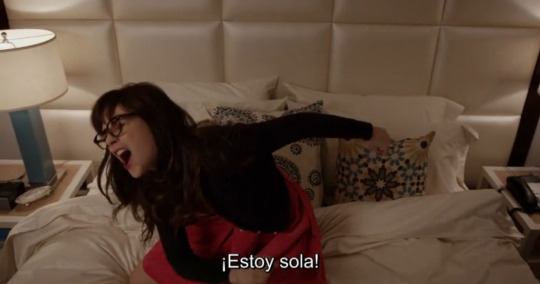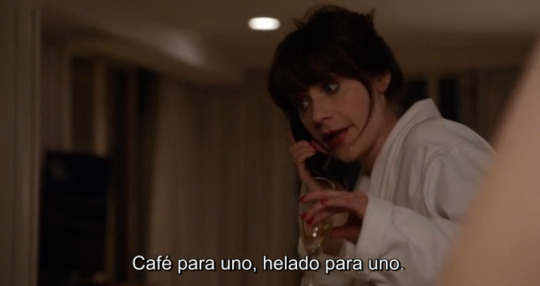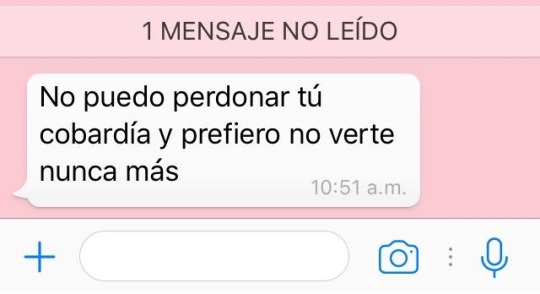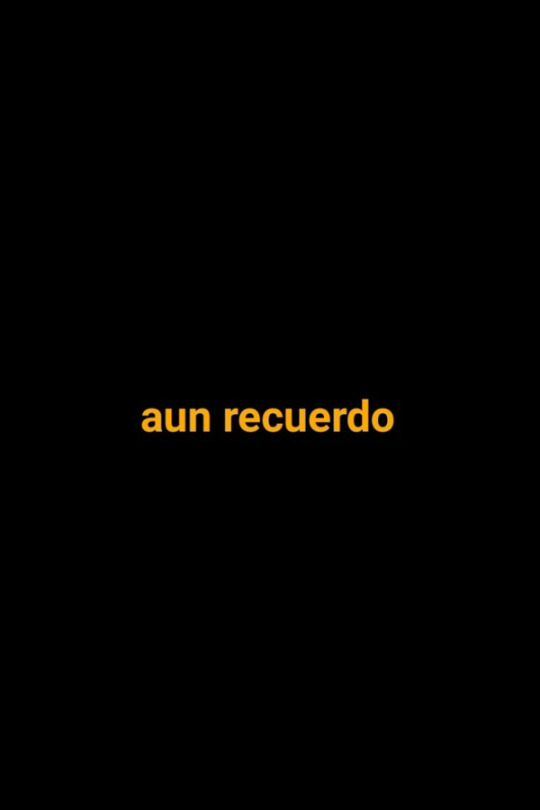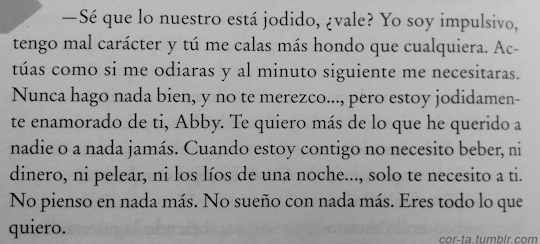Text
Cuando finalices una relación, borra todas las fotos de esa persona. No te hará sentir mejor, pero vas a liberar espacio para memes.
9K notes
·
View notes
Conversation
Katherin:¿No extrañas el amor?
Alexandra: Como extrañar algo que no conozco.
171 notes
·
View notes
Photo

Mi mejor metáfora para describir nuestro amor, es fumar un cigarro.
Se encendió con fuego puro, y fue demasiado rápido. Pero al igual que un cigarro, fue efímero.
Para mantener vivo el amor, necesitábamos consumirnos. Inhalarnos.
Tan intenso que nos quitaba el aliento y nos ardían los pulmones. Y cada que nos consumíamos, nos acabábamos poco a poco. No tan rápido, ni tan lento. Pero con un inevitable final. Cada inhalada era una nueva herida en el corazón, era arrancarnos un pedacito de alma. Un trozo nuevo de dolor. Un espacio más grande del vacío en el interior.
Y así cuando se terminó el cigarro, nos dejó un gran sabor amargo en nuestras vidas. Un poco menos de oxígeno en los pulmones, una adición a lo que nos hace daño. Y una enorme necesidad de volver a fumar, y esa es la explicación de porqué siempre nos volvemos a buscar.
-La imposibilidad del olvido.
2K notes
·
View notes
Text
Y como lo nuestro no tuvo un adiós, tampoco tuvo un fin, lo que significa que estés donde estés nos volveremos a encontrar
211 notes
·
View notes
Photo
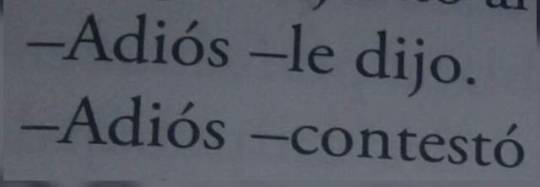
No te detendré.
No es tiempo, no lo haré otra vez. Si te quieres ir, está bien, lo aceptaré con en dolor en el alma.
No te detendré porque estoy cansado de hacerlo, estoy cansado de decirte que te quedes una y otra vez, ya comprendí que no quieres luchar, no quieres estar aquí.
Yo llego hasta acá, para amar se necesitan dos, y claramente yo estoy haciendo el papel que te toca.
¡Adiós!
201 notes
·
View notes
Photo

Saying good bye!
¡Adiós! - Good bye!
¡Chau! - Bye!
¡Buenos días! - Good morning!
¡Buenas tardes! - Good afternoon!
¡Buenas noches! - Good evening! / Good night!
Just as the greetings, we also use these expressions to say good-bye in a more formal way. Usually combined with others, for example: ¡Gracias, buenos días! ¡Hasta luego, buenas tardes!
¡Gracias! - Thank you!
¡Muchas gracias! - Thank you so much!
Saying ‘see you!’
¡Hasta luego! - See you later!
¡Nos vemos! - See you!
¡Nos vemos luego! - See you later! (We’ll meet later)
¡Hasta pronto! - See you soon!
¡Nos vemos pronto! - See you soon! (We’ll meet soon)
¡Nos vemos después! - See you later! (We’ll meet later)
¡Hasta la próxima! - See you next time!
¡Hasta mañana! - See you tomorrow!
We also use this expression to say “good night!”
¡Hasta la próxima semana! - See you next week!
¡Hasta el próximo martes! - See you next Tuesday!
¡Nos vemos mañana! - See you tomorrow! (We’ll meet tomorrow!)
¡Nos vemos la próxima semana! - See you next week! (We’ll meet next week)
¡Nos vemos el próximo jueves! - See you next Thursday! (We’ll meet next Thursday!
Wishing good vibes
¡Buen día! - Good day! (neutral)
¡Que tengas buen día! - Have a nice day! (informal)
¡Que tenga buen día! - Have a nice day! (formal)
¡Que tengan buen día! - Have a nice day! (plural)
¡Bonito día! - Lovely day! (neutral)
¡Que tengas bonito día! - Have a lovely day! (informal)
¡Que tenga bonito día! - Have a lovely day! (formal)
¡Que tengan bonito día! - Have a lovely day! (plural)
¡Que te vaya bien! - Good luck! (informal)
¡Que le vaya bien! - Good luck! (formal)
¡Que les vaya bien! - Good luck! (plural)
This expression can also be translated as “I hope that things go well for you!”
¡Que te diviertas! - Have fun! (informal)
¡Que se divierta! - Have fun! (formal)
¡Que se diviertan! - Have fun! (plural)
¡Buena suerte! - Good luck!
¡Buen viaje! - Have a nice trip! (neutral)
¡Que tengas buen viaje! - Have a nice trip (informal)
¡Que tenga buen viaje! - Have a nice trip (formal)
¡Que tengan buen viaje! - Have a nice trip (plural)
¡Cuídate (mucho)! - Take care! (informal)
¡Cuídese (mucho)! - Take care! (formal)
¡Cuídense (mucho)! - Take care (plural)
¡Maneja con cuidado! - Drive safe! (informal)
¡Maneje con cuidado! - Drive safe! (formal)
¡Pórtate bien! - Be good! Behave yourself! (singular)
¡Pórtense bien! - Bee good! Behave yourself! (plural)
Mostly used when you talk to kids.
Hoping to see them again
¡Vuelve pronto! - Come back soon! (informal)
¡Vuelva pronto! - Come back soon! (formal)
¡Vuelvan pronto! - Come back soon! (plural)
¡Espero verte pronto! - I hope to see you soon (informal)
¡Espero verlo/verla pronto! - I hope to see you soon (formal)
¡Espero verlos/verlas pronto! - I hope to see you soon (plural)
verlo = see you (to a man)
verla = see you (to a woman)
verlos = see you (to a group of men OR a group of men and women)
verlas = see you (to a group of women)
¡Espero verte otra vez! - I hope to see you again! (informal)
¡Espero verlo/verla otra vez! - I hope to see you again! (formal)
¡Espero verlos/verlas otra vez! - I hope to see you again! (plural)
Telling you were happy to see them
Me dio (mucho) gusto conocerte. - I (really) enjoyed meeting you (informal)
Me dio (mucho) gusto conocerlo/conocerla. - I (really) enjoyed meeting you (formal)
Me dio (mucho) gusto conocerlos/conocerlas. - I (really) enjoyed meeting you (plural)
Me dio (mucho) gusto verte. - I (really) enjoyed seeing you (informal)
Me dio (mucho) gusto verlo/verla. - I (really) enjoyed seeing you (formal)
Me dio (mucho) gusto verlos/verlas. - I (really) enjoyed seeing you (plural)
We use “conocer” when we meet a person for the first time. We use “ver” when we meet a person that we already knew.
Me dio (mucho) gusto hablar/platicar contigo. - I (really) enjoyed talking/chatting with you (informal)
Me dio (mucho) gusto hablar/platicar con usted. - I (really) enjoyed talking/chatting with you (formal)
Me dio (mucho) gusto hablar/platicar con ustedes. - I (really) enjoyed talking/chatting with you (plural)
Me dio (mucho) gusto saludarte. - I (really) enjoyed greeting you. / I really enjoyed saying hello to you. (informal)
Me dio (mucho) gusto saludarlo/saludarla. - I (really) enjoyed greeting you. (formal)
Me dio (mucho) gusto saludarlos/saludarlas. - I (really) enjoyed greeting you. (plural)
I know in English this sounds a little weird or funny. But in Spanish we usually say this expression when we meet someone again after a long time and we are happy we were able to see them and talk with them.
Showing you also think about their family
Me saludas a tu(s) ______. - Say hello from me to your _______. (informal)
Me saludas a tu mamá. - Say hello to your mom. (informal)
Me saludas a tu familia. - Say hello to your family. (informal)
Me saludas a tus papás. - Say hello to your parents. (informal)
Me saluda a su(s) _____. - Say hello from me to your ______. (formal)
Me saluda a su esposa. - Say hello to your wife. (formal)
Me saluda a su familia. - Say hello to your family. (formal)
Me saluda a sus hijos. - Say hello to your children. (formal)
Dile a tu(s) _______ que le(s) mando saludos. - Tell your ________ that I say hello. (Tell your ____ that I send my greetings.) (informal)
Dile a tu tía que le mando saludos. - Tell your aunt that I say hello. (informal)
Dile a tus papás que les mando saludos. - Tell your parents that I say hello. (informal)
In Latin American culture family is very important. So showing people that you also care about their family is much appreciated too.
I hope this was useful for you! :)
Saludos (Greetings)
2K notes
·
View notes

